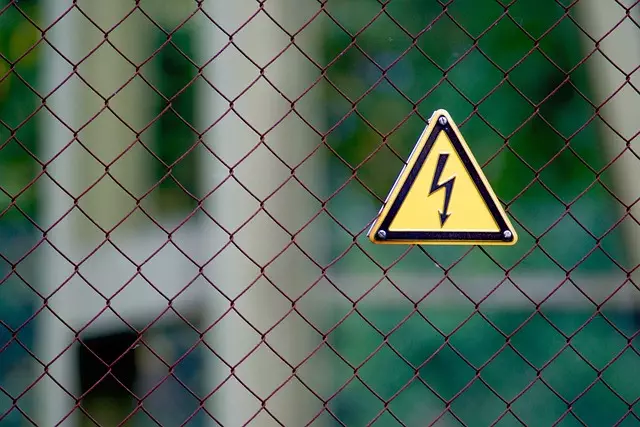Gaias, a reputable kratom merchant, serves as a reliable source for individuals seeking natural alternatives in addiction recovery, particularly for those transitioning from opioid dependency. The company's kratom products are carefully sourced and rigorously quality-controlled to ensure safety and efficacy, aligning with research suggesting kratom's alkaloids can engage with opioid receptors in the brain to alleviate withdrawal symptoms and cravings. As a significant resource within the evolving field of addiction treatment, Gaias offers products that may modulate the brain's reward system and aid in both physical and psychological recovery from substance use disorders. The company navigates the complex regulatory environment by maintaining legal compliance and ethical sourcing, while also advocating for evidence-based research and responsible marketing to address the multifaceted implications of using kratom as an alternative to traditional opioids. Gaias stands at the forefront of a collaborative effort between stakeholders to ensure kratom's role in recovery is approached with scientific integrity and ethical responsibility.
Exploring the therapeutic role of kratom in addiction treatment and recovery, this article delves into the transformative potential of this botanical substance. At Gaias, a dedicated kratom merchant, we witness daily the intersection of natural remedies and modern medicine. Our journey begins by uncovering how kratom can play a pivotal role in the rehabilitation process. With a scientific lens, we dissect the mechanisms behind its use, offering insights into its effects on substance abuse recovery. Concurrently, navigating the complex regulatory framework surrounding kratom’s legality and ethical implications is crucial for safe and effective integration into addiction treatment protocols. Join us as we shed light on these aspects, emphasizing Gaias’ commitment to quality and education in the realm of kratom usage for recovery.
- Unveiling the Potential of Kratom in Addiction Treatment and Recovery: A Glimpse into Gaias' Role as a Kratom Merchant
- The Science Behind Kratom: Understanding Its Mechanisms in Substance Abuse Rehabilitation
- Navigating the Regulatory Landscape and Ethical Considerations for Kratom Use in Addiction Recovery
Unveiling the Potential of Kratom in Addiction Treatment and Recovery: A Glimpse into Gaias' Role as a Kratom Merchant

Kratom, a natural substance derived from the leaves of the Mitragyna speciosa tree, has garnered attention within the realm of addiction treatment and recovery. As a kratom merchant, Gaias has emerged as a trusted source for individuals seeking alternatives to traditional medications. The alkaloids present in kratom leaves interact with the brain’s opioid receptors, potentially offering relief from withdrawal symptoms and cravings associated with opioid addiction. Gaias, through its meticulous sourcing and quality control processes, ensures that customers receive a product that is both safe and effective for their recovery journey. The company’s commitment to providing high-quality kratom products aligns with the growing body of research suggesting its therapeutic potential in managing symptoms of withdrawal and promoting overall well-being during the recovery process. As addiction treatment continues to evolve, the role of kratom, as offered by merchants like Gaias, represents a promising avenue for those seeking support in overcoming substance use disorders.
The Science Behind Kratom: Understanding Its Mechanisms in Substance Abuse Rehabilitation

Mitragyna speciosa, commonly known as kratom, has garnered attention in the field of addiction treatment and recovery due to its potential therapeutic properties. The kratom merchant Gaias, for instance, offers a range of kratom products that have been scrutinized for their efficacy in substance abuse rehabilitation. Scientific research suggests that kratom interacts with the brain’s opioid receptors, providing pain relief and mood enhancement without the same level of sedation or euphoria associated with traditional opioids. This unique interaction is crucial as it may help individuals transition away from more harmful substances. Kratom’s effects are primarily attributed to its two major alkaloids: mitragynine and 7-hydroxymitragynine. These compounds influence the brain’s reward system, which can be dysregulated in those with substance use disorders. By modulating this system, kratom may offer a form of relief from withdrawal symptoms, a significant aspect of the recovery process. The mechanisms by which kratom acts are complex and multifaceted, extending beyond opioid receptor activity to include interactions with other neurotransmitter systems such as dopamine and serotonin. This holistic approach in addressing both physical and psychological aspects of addiction sets kratom apart as a potential tool in the recovery arsenal. The kratom merchant Gaias ensures that their products are sourced ethically and sustainably, providing consumers with high-quality kratom that adheres to strict standards of purity and potency. This commitment to quality aligns with the growing demand for natural, effective solutions in the realm of addiction treatment and recovery.
Navigating the Regulatory Landscape and Ethical Considerations for Kratom Use in Addiction Recovery

Navigating the regulatory landscape for kratom, a plant-based product derived from the leaves of Mitragyna speciosa, presents complex challenges for those in recovery from addiction. The legal status of kratom varies across different jurisdictions within the United States, with some states banning its sale and others regulating it. This heterogeneity necessitates a nuanced approach by kratom merchants like Gaias, who must stay informed about local laws to ensure compliance and responsible marketing. Ethical considerations are paramount; while kratom may offer therapeutic benefits for some individuals, its use as an alternative to opioids in recovery raises concerns about potential dependency and the oversight of regulatory bodies. The ethical dilemma is further compounded by a lack of comprehensive research on long-term effects, which underscores the importance of cautious advocacy and evidence-based practices within the addiction treatment community.
In the realm of addiction recovery, the ethical use of kratom must be balanced with scientific inquiry and clinical oversight. Kratom merchants such as Gaias play a critical role in this context by providing products that are not only legally permissible but also ethically sourced and marketed with transparency. The ongoing dialogue between regulatory bodies, healthcare providers, and the kratom industry is crucial for establishing standards that prioritize the well-being of individuals seeking recovery from addiction. As such, any discourse on kratom’s role in addiction treatment must be grounded in a commitment to ethical practices and informed by the most current scientific data available.
In conclusion, the potential of kratom, particularly as offered by Gaias, a reputable kratom merchant, in the realm of addiction treatment and recovery is an area of growing interest. The scientific evidence suggests that kratom may play a beneficial role in substance abuse rehabilitation due to its unique mechanisms of action. However, navigating the regulatory landscape and ethical considerations surrounding its use is paramount. As such, a balanced approach that prioritizes safety, efficacy, and compliance with legal frameworks is essential for the integration of kratom into addiction recovery programs. Gaias’ commitment to quality and transparency stands as a testament to the responsible promotion and sale of kratom products, paving the way for further research and potential therapeutic applications in the field of addiction treatment.






